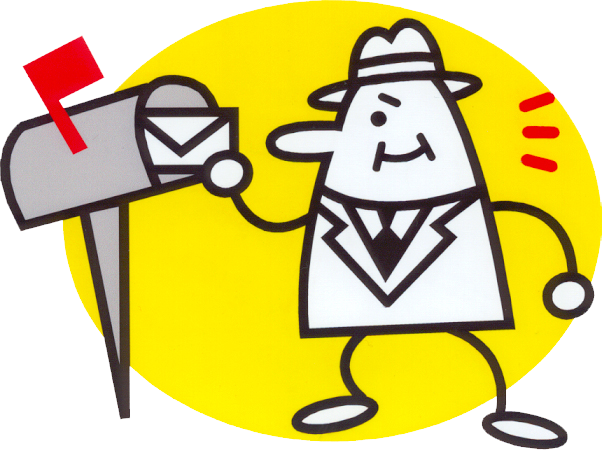Legal Question of the Week – 1/8/15

By Attorney Thomas B. Mooney, Neag School of Education, University of Connecticut
The “Legal Question of the Week” is a regular feature of the CAS Weekly NewsBlast. We invite readers to submit short,
law-related questions of practical concern to school administrators. Each week, we will select a question and publish an
answer. While these answers cannot be considered formal legal advice, they may be of help to you and your colleagues.
We may edit your questions, and we will not identify the authors.
Please submit your questions to: legalmailbag casciac
casciac org.
org.
__________________________________________________________________________________________________________________
Dear Legal Mailbag:
I don’t always exercise the best judgment when writing emails, and I have a lamentable tendency to respond in haste and repent at leisure. However, I think that I have come up with a great way to avoid embarrassment. Most of my administrative colleagues use the district email server to conduct their official business, but after searching through the employee handbook and even the acceptable use policy, I don’t see anything that requires that I do so.
Given the apparent luxury of choice here, I have decided to use my personal email when I am involved in something contentious, such as preparing for a special education hearing or chatting with colleagues on how best to “support” a teacher who is doomed to fail. I figure that personal email gives me a little more flexibility to clean up after myself if ever an FOIA request is made for my emails. If I am using my personal email, I can decide whether and what responsive emails I have, right? In fact, can’t I just take the position that my personal email means just that – it is personal and not subject to review by nosy parents and others?
Signed,
Email Legerdemain
Dear Mr. Legerdemain, if I may call you that:
It is hard to know where to start in explaining the fallacy of your ill-conceived strategy to avoid your obligations under the Freedom of Information Act. The FOIA defines a “public record” broadly as “any recorded data or information relating to the conduct of the public’s business prepared, owned, used, received or retained by a public agency, . . . whether such data or information be handwritten, typed, tape-recorded, printed, photostated, photographed or recorded by any other method.” Whenever you write an email that relates to your professional responsibilities as a school administrator, you are creating a public record that is subject to disclosure unless expressly exempt from disclosure under the FOIA (such as student information, medical information or attorney-client communications). Moreover, there are any number of FOIC decisions that direct disclosure of records created, received or maintained by a public official on a personal computer.
The “flexibility” to which you refer sounds fishy to me. A record is a record, and if you determine after the fact that the record is embarrassing or worse, you do not have the right to delete or amend the record. Indeed, Conn. Gen. Stat. Section 1-240 provides that “Any person who wilfully, knowingly and with intent to do so, destroys, mutilates or otherwise disposes of any public record without the approval required [by law], or who alters any public record, shall be guilty of a class A misdemeanor and each such occurrence shall constitute a separate offense.”
Finally, you must also keep in mind that public officials have a duty (1) to retain public records for the periods established by law and (2) to provide prompt public access to those records. The Public Records Administrator has ruled that email is subject to the record retention period applicable to functional equivalents. For example, if an email serves the function of routine correspondence, that email must be retained for the period applicable to routine correspondence, which is two years. Record retention is not an issue on the school district server, but can be a problem for you with your personal emails. Moreover, if a parent or other member of the public wants to see your emails related to your public responsibilities, you must promptly provide access to all non-exempt emails, and sorting out personal emails from emails related to your public responsibilities can be very time-consuming. In short, there are no good reasons to conduct your professional business on your personal email, but rather only bad reasons that will cause you trouble.
